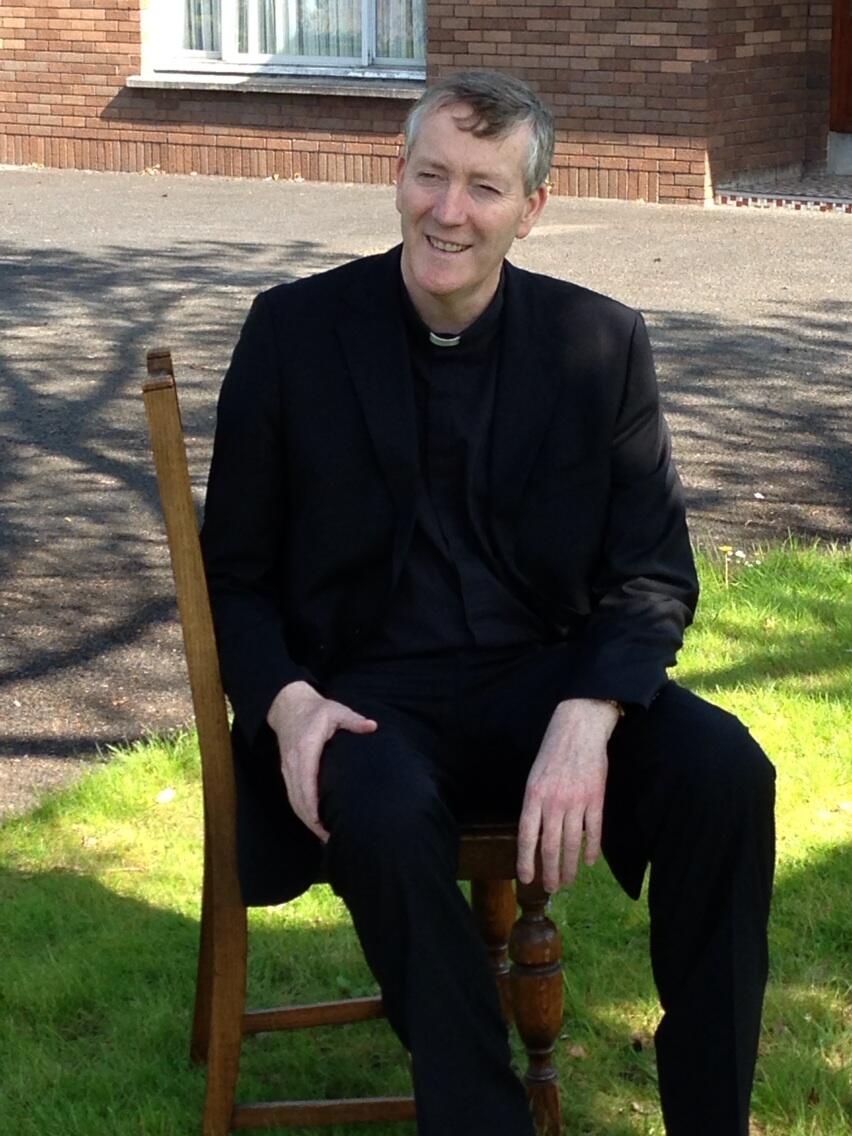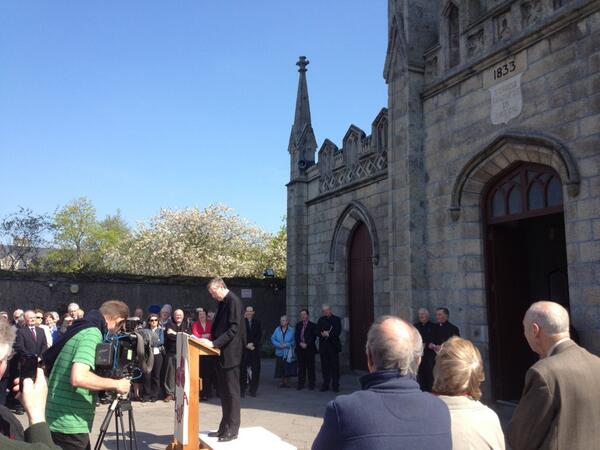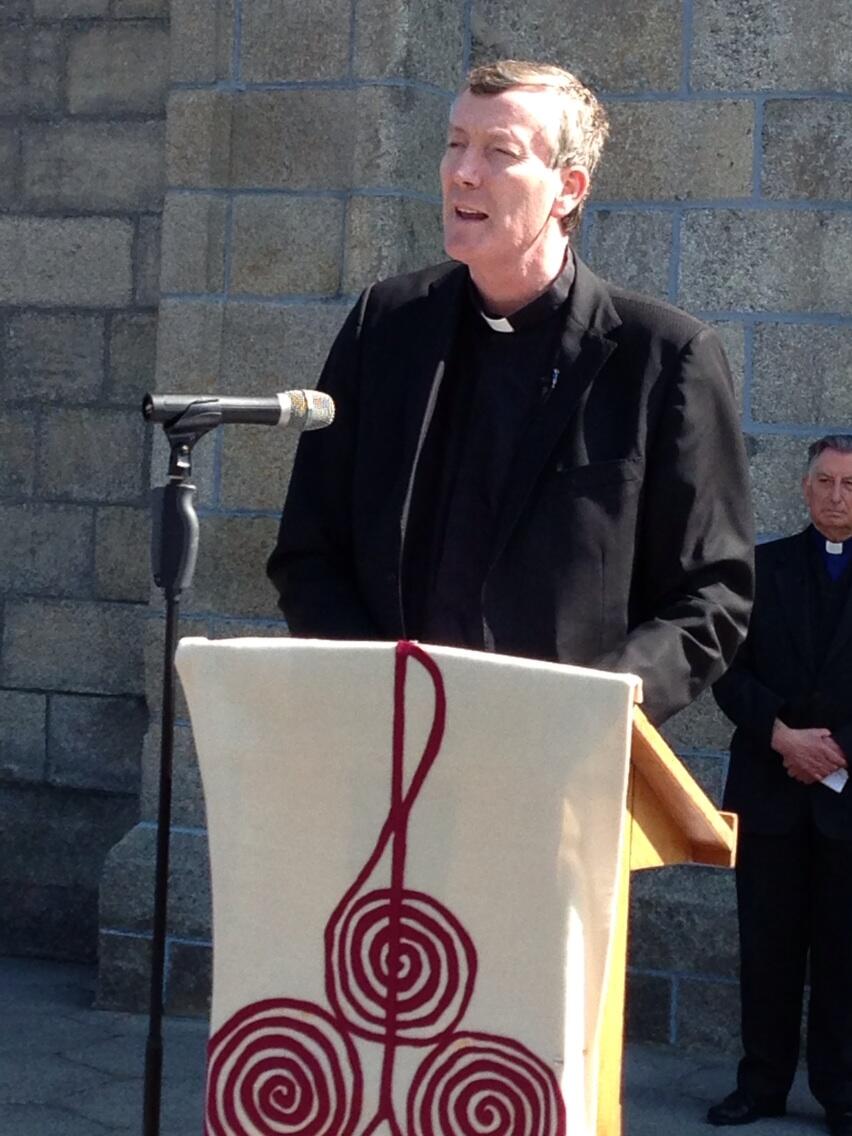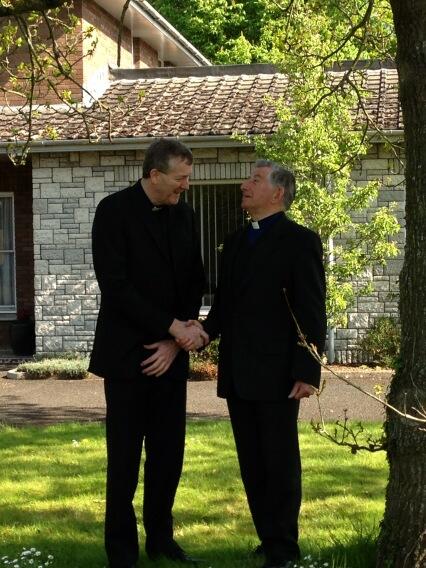When I was serving in a parish in the US as a seminarian, I remember one evening the pastor called me to go out for a drive. I gladly went - these little trips usually ended up meeting interesting people or visiting interesting places. Normally the pastor told me where we were going, but on that evening he simply said, "Wait and see".
We headed to the outskirts of the parish and travelling down one of the boulevards we suddenly turned left into a road through a wooded area. About half a mile down the road the woods yielded to manicured lawns, designer gardens and a small estate of little mansions with luxurious cars parked outside.
"You know who lives here?" the pastor asked.
I knew: "The mob?"
"Exactly."
"Are they your parishioners?"
"Oh yeh!"
Later that evening I asked the pastor if they ever came to church. "Only for baptisms, weddings and funerals. And First Communions and Confirmations of course!"
Of course. It fits a pattern.
"How do you feel when you see them arriving in looking for these ceremonies?" I asked.
"Used."
We all know about the mafia, their crimes, their rackets and their strange attachment to their ancestral faith, Catholicism - a faith whose teachings they regularly breach as they pursue their unique line of business. They are one of the extremes of those who claim to be Catholic but yet disregard the teachings of the Church and are involved in some of the most horrendous crimes.
For decades the Church has been involved in a conflict with the mob, although some of her ministers have found themselves becoming almost unofficial chaplains to the mafia, for "pastoral reasons". That conflict is, for intents and purposes, a war, and in that war individual priests have been murdered by fellow Catholics who believe that what they doing is right and the Church should just accept it as "business" and "nothing personal".
Today in Palermo the Church made a very strong statement about the mafia and its line of business. With the beatification of a Sicilian priest who opposed the mafia and was murdered for his work, the Church has declared that this priest killed by fellow, unfaithful and murderous Catholics, was a martyr and he has been granted the honours of glorification in the sight of God for his heroic witness. Today the Church celebrates with joy the heroic witness of Blessed Pino Puglisi, a diocesan priest martyred because he preached the Gospel of life and love to fellow Catholics and they took offence and wanted him out of the way.
Blessed Pino was a popular priest in Palermo. Born in 1937 into a working class family, he knew all about poverty, need and injustice. He discerned a vocation to the priesthood at an early age and he entered seminary at the age of 16, being ordained a priest for the diocese of Palermo on the 2nd July 1960. He was assigned to various parishes and there among other problems he had to deal with the Sicilian curse of the vendetta. He reminded his flock of the importance of living the Christian faith in its fullness, not picking and choosing those doctrines which suit us and disregarding others. The vendetta had nothing to do with Christianity, and Christians should have nothing to do with the vendetta.
But Don Pino recognised a greater danger than the vendetta - the mafia. At the time his own bishop considered communism a greater problem in Sicily, but Don Pino did not agree - the mafia was a bigger problem - its influence on the island far surpassed that of the communists. At times he came to blows with his bishop and the local church over this issue, but in all of his criticism he reminded people that he loved the Church and he was trying to draw her attention to a problem which needed to be addressed. His stance did not alienate him, he was well respected by his superiors and fellow priests, and entrusted with important pastoral appointments, among them vice-rector of the seminary and vocations director.
In 1990 he was appointed as pastor of an inner city parish in Palermo, San Gaetano in Brancaccio, a parish which was difficult. He had been offered other, more peaceful parishes, but he turned them down. In San Gaetano he was now on the frontline in the battle against the mafia. His parishioners lived in fear of the mafia which had a hold on the people and businesses of the area. Don Pino threw himself into a mission to undermine this hold. He set up projects for young people to keep them from coming under the influence of the dons. He preached against the mafia, pleading with the local authorities to stand up to the criminality which was filling the coffers of the mob. He challenged the silence of the local people. In this mission it has to be said he received very little support from the archdiocese - he was on his own.
At first the mafia tried to bring him round. They turned up for the local feast days and tried to be generous to Don Pino and his parish, offering money as a peace offering: Don Pino refused it. When the heads of the mafia wanted their traditional places of honour leading the festival processions, Don Pino would not allow them to walk in the procession - to do so would be seen as a sign of approval. When work needed to be done in the parish and certain firms were "suggested" by the mafia, he refused to consider these firms and engaged others.
It soon became clear that Don Pino was not going to be turned, not even recourse to "pastoral sensitivity" persuaded the dynamic pastor to give an inch. He began to receive threats, at first subtle, but soon becoming more threatening. Parishioners who supported the priest and helped him in his mission were targeted and harassed.
On the 15 September 1993, at 8.45 in the evening as he was standing on the steps of his church, he was gunned down: his killing had been ordered by mafia bosses, brothers Filippo and Giuseppi Graviano. The gunmen had simply walked up to priest. As he turned to them, Don Pino said, "I have been expecting you." He was shot at point-blank range. Unconscious, he was taken to hospital where he died. It was his 56th birthday. His murder sent shockwaves throughout Italy. Although it was obvious that the mafia killed him, people were still afraid to apportion blame: even at the priest's funeral the Cardinal of Palermo avoided any question of the mafia being suspects. However, people were not prepared to let this crime, and soon enough his killers were arrested, tried and convicted; today they are serving life sentences, among them the Graviano brothers who ordered his death.
Blessed Pino was a heroic priest. He preached the Gospel of life even to leaders in the Church who were afraid to speak out against sin and injustice. He teaches us that we must face down evil, see it for what it is and not try and convince ourselves that we can cooperate with it for "pastoral reasons". He faced evil with courage and love and he paid the ultimate price. As is obvious from his death he was not afraid to shed his blood in the battle against evil, and in this he offers all priests an example of true pastoral ministry: not fear, not justification, not avoiding the issue: but living and speaking boldly and laying down one's life.
He teaches us priests not to be afraid to preach the Gospel even when people oppose us: to proclaim the truth is to love.
Here is a video about Blessed Pino, it's in Italian, but there are a few snippets of him speaking. His feast day will be the 21st October.

.JPG)












